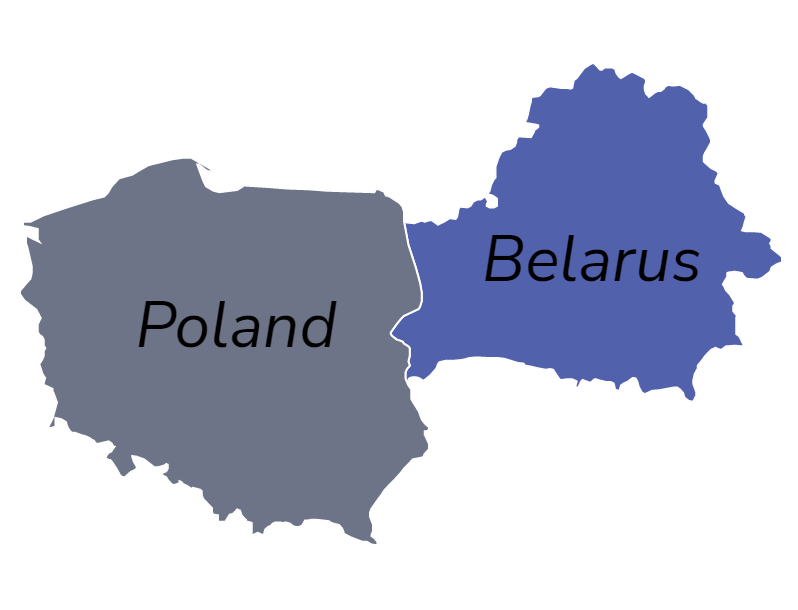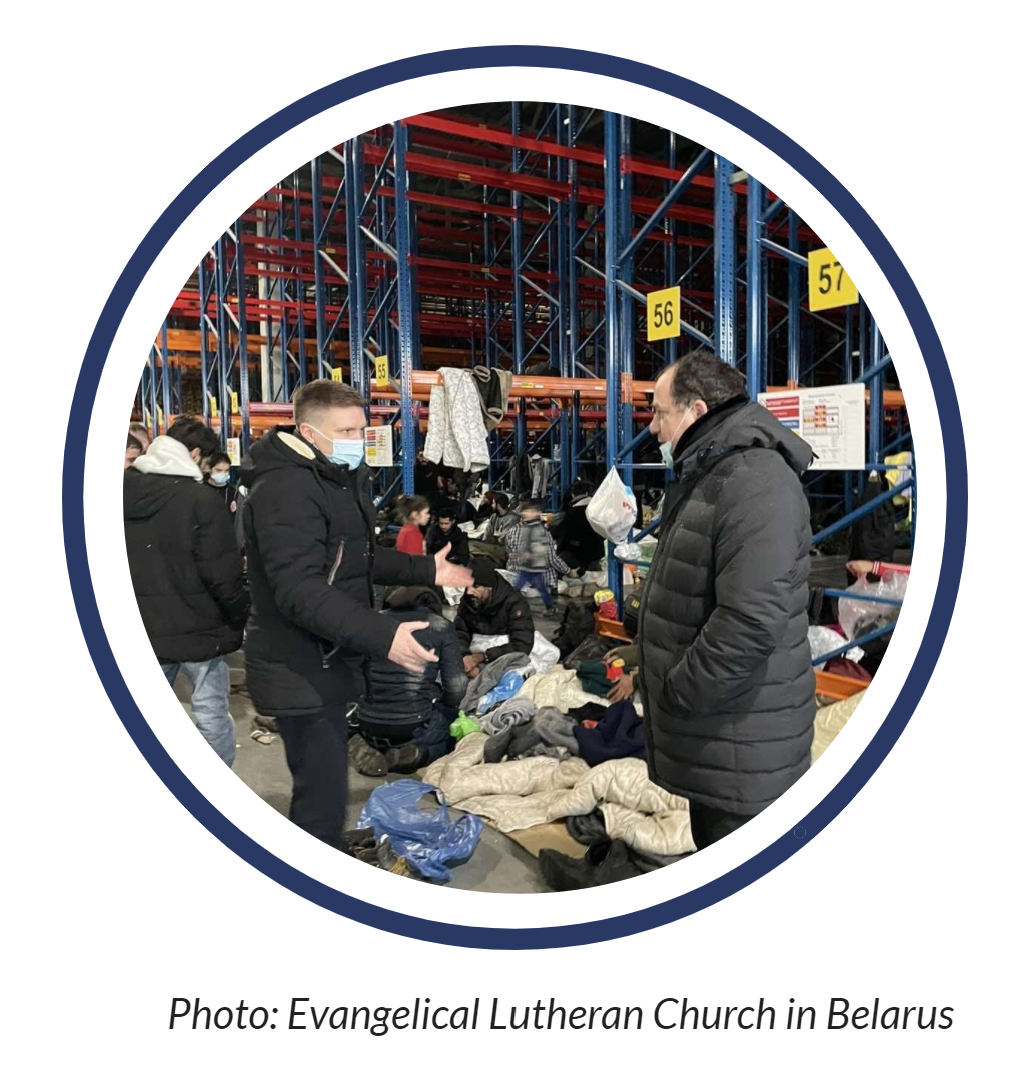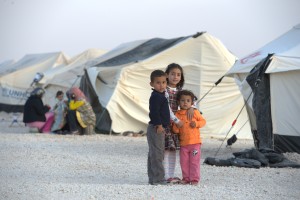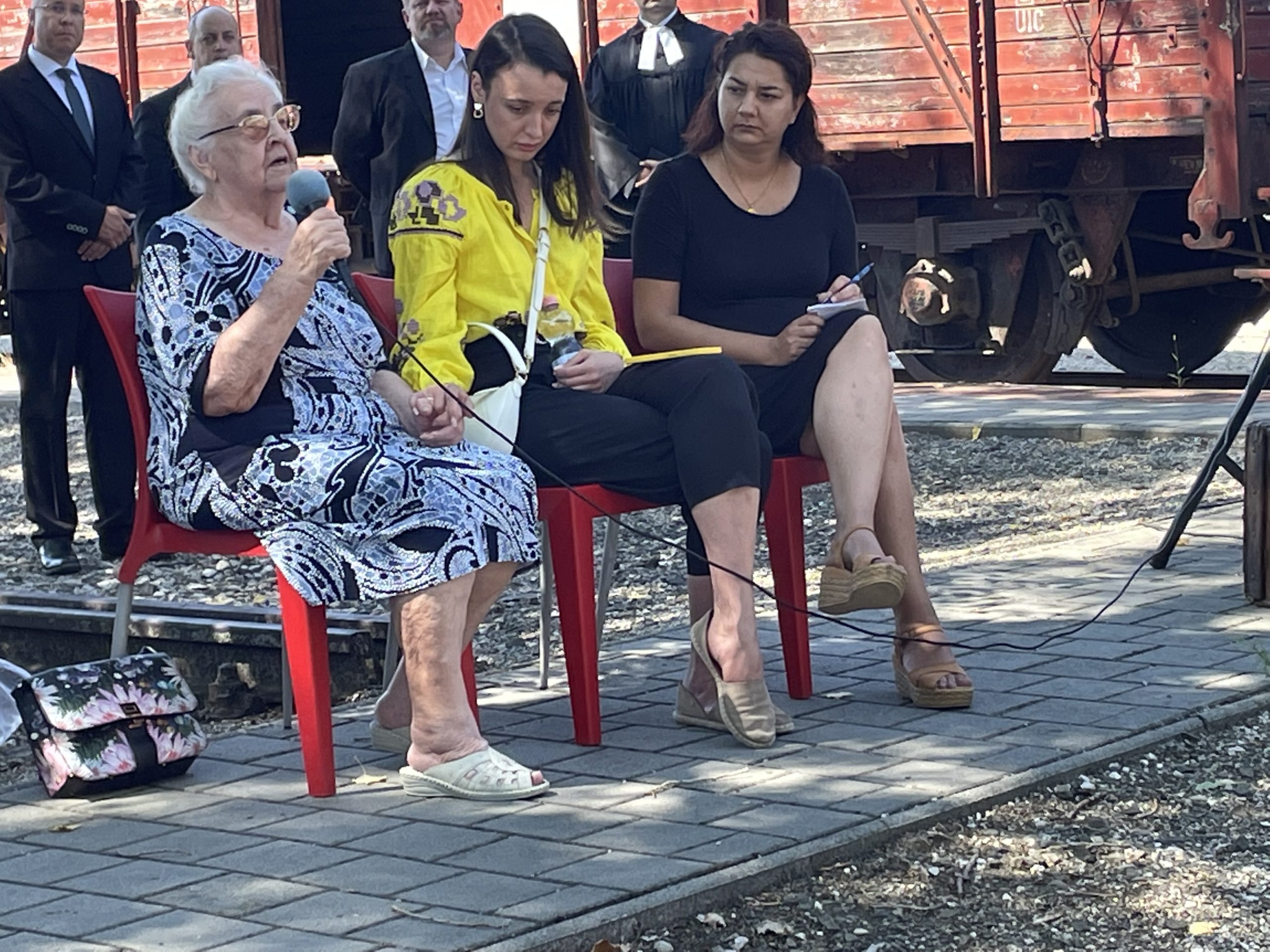
Holocaust survivor Mariia Simian, her granddaughter Anzhelika Bielova, both from Zaporizhzhia, Ukraine, and Phiren Amenca staffer Anna Daroczi at a memorial for Roma victims of the Holocaust,
Mariia Simian, from Zaporizhzhia, Ukraine, is living through war for a second time. Just three years old when World War II tore across Europe in the 1940s, she says the memories haunt her.
“I remember everything,” she says. “I often remember. My mother hid our whole family from this horror wherever she could – in the basement, in fields behind the house – because the Nazis were looking for Roma.”
Simean, who is Roma, spoke at a recent remembrance ceremony for Roma victims of the Holocaust, hosted by ELCA partner organization Phiren Amenca in Budapest. As many as 500,000 Roma people were among those murdered by the Nazis during World War II.
Speaking in Ukrainian, with her granddaughter Anzhelika Bielova translating into English, Simeak continued, “I really want everyone to remember these horrors of war, the crimes against humanity, against Roma people…Evacuation, frightened people fleeing from death, mass graves of civilians, destroyed houses, all this is now in Ukraine after 80 years.…I want peace, only peace, and a better future for all of us and for new generations.”
Europe’s largest ethnic minority, the Roma people – descendants of tribes from northern India who migrated to Europe in the Middle Ages – experience a great deal of discrimination and racism. In one recent survey 95 percent of Roma youth said they have observed discriminatory words, behaviors, or gestures, and more than two-thirds reported having personally been the target of such discrimination, according to Marietta Herefort, managing director of Phiren Amenca, a Roma advocacy organization with offices in Budapest and Brussels.
Roma people often face discrimination accessing housing, employment, education and other services, Herefort added, and Roma refugees from Ukraine have been treated differently than their white counterparts across Europe.
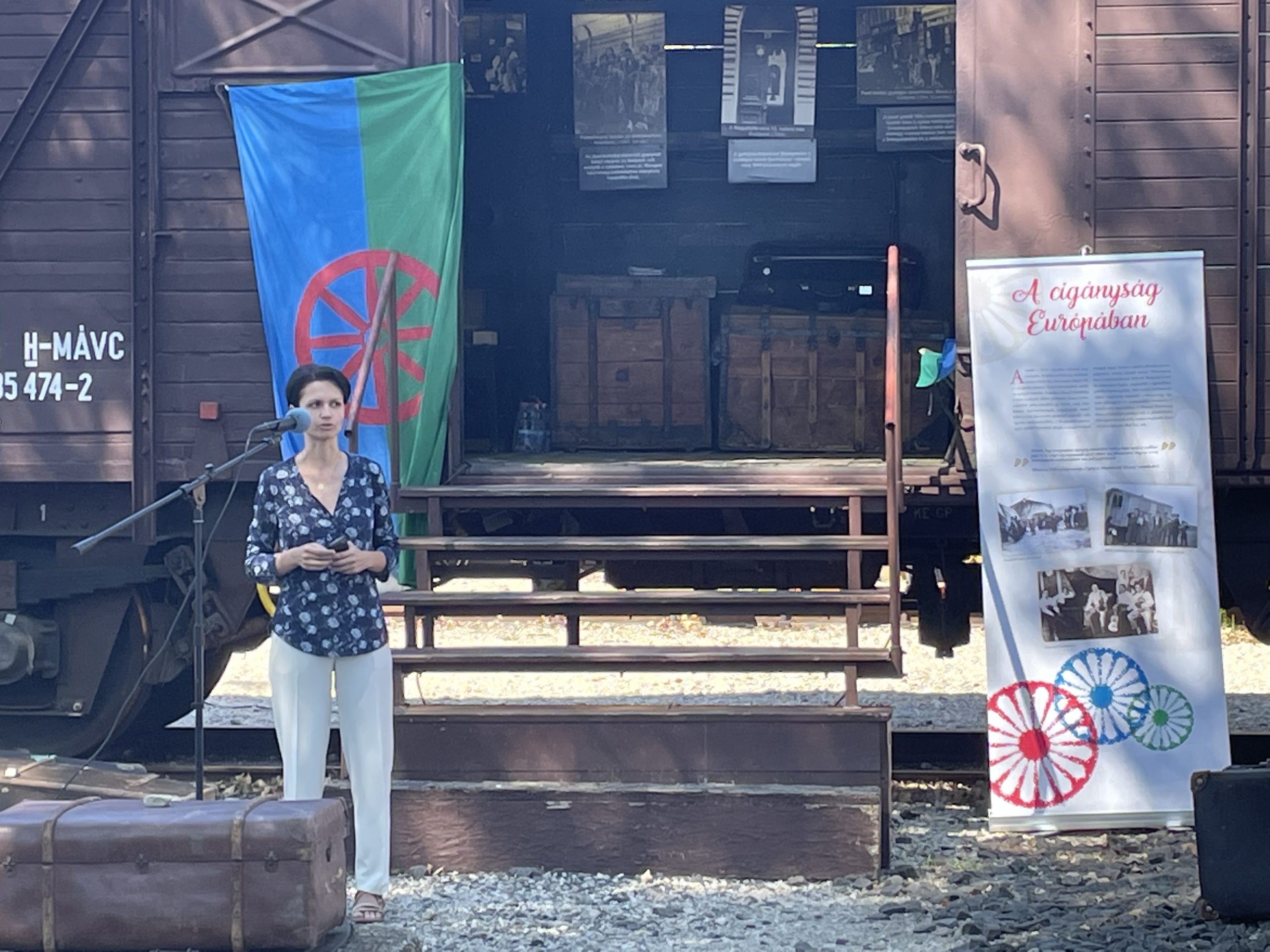
Marietta Herefort, managing director of ELCA partner Phiren Amenca, speaks at a remembrance for Roma victims of the Holocaust, August 2, 2022 in Budapest.
“It’s a justice issue”
Thousands of Roma people are among the roughly 7 million who have fled Ukraine since the war began in February 2022, but many report that the reception in neighboring countries has been far from warm. In Hungary, ELCA works with Phiren Amenca and the Evangelical Lutheran Church in Hungary (ELCH) to ensure that Roma refugees are treated with the same dignity as others arriving from Ukraine.
It’s a justice issue,” says the Rev. Rachel Eskesen, ELCA area desk director for Europe. “Anti-gypsyism, discrimination against Roma communities and individuals, remains a prevalent form of racism across Europe.”
Attila Meszaros, coordinator of the ELCH refugee response, says before the war, the church might help about 300 refugees per year. That number has more than tripled as refugees poured across the border from Ukraine, he says, and about 90 percent of those served by the church are Roma people who have had difficulty accessing services elsewhere. With support from the ELCA, they have hired additional staff to manage the increased caseload, including a social worker who is herself Ukrainian and can assist when there is a language barrier. The church helps families with rent, groceries and assistance in finding employment, and each social worker is usually in touch with about 50 families per day.
One mother of three burst into tears when she received a grocery voucher, Meszaros said. The family had lived underground for a month in Ukraine subsisting on packaged food. She rushed out to buy fresh fruits and vegetables for her children.
Serving Roma People
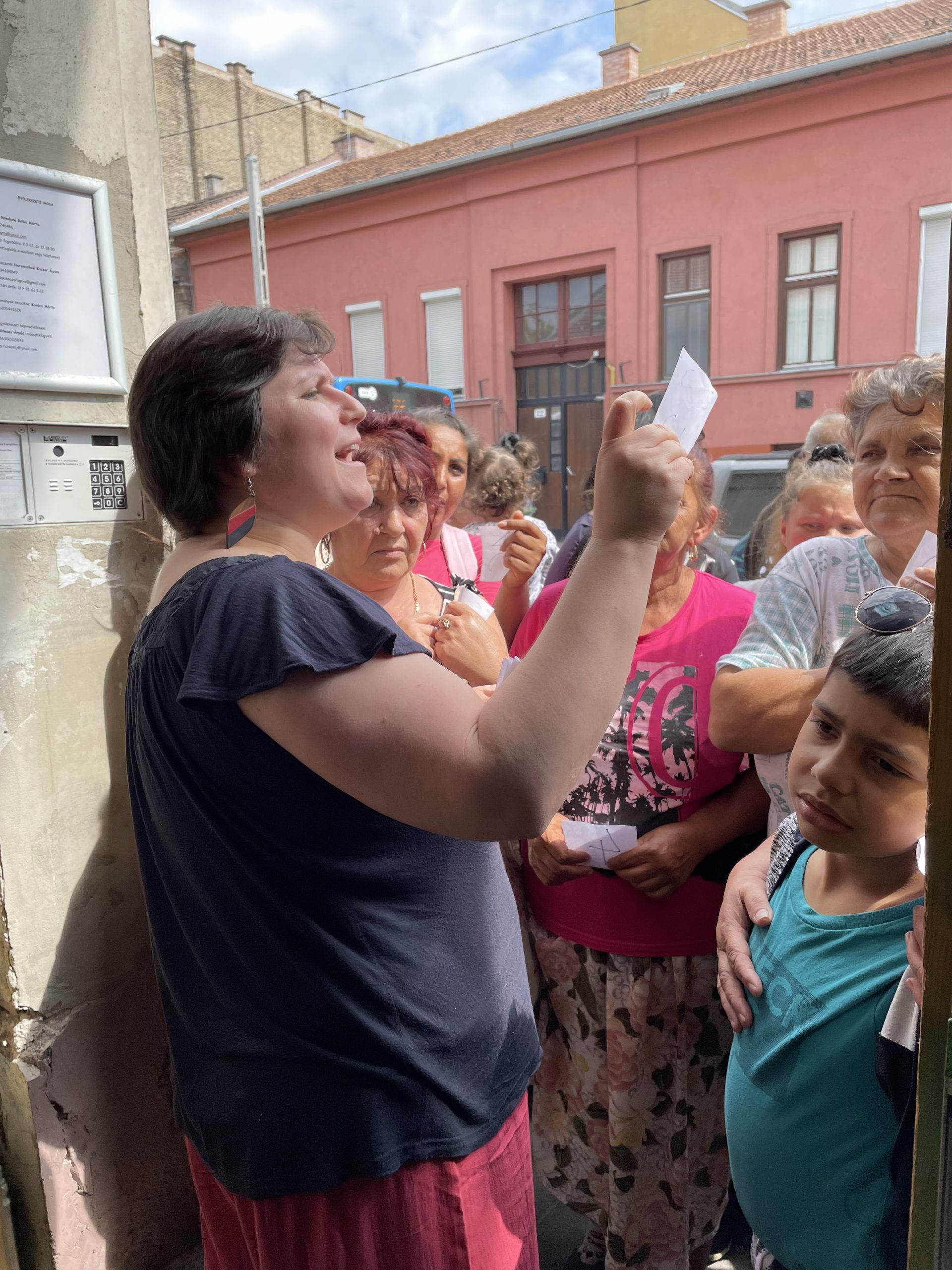
Rev. Márta Bolba, pastor of Mandak House in Budapest, Hungary, speaks to a crowd gathered outside the church for donated food and clothing
Ministry to Roma people is not new for the ELCH. Mandak House, a Lutheran congregation and social ministry in Budapest led by Pastor Márta Bolba, has a longstanding program donating food, clothing and other necessities to the most vulnerable as well as a long history of advocating for equal treatment of Roma people. In fact, Bolba said, they recently relocated the donation center to another site as the ministry had outgrown the space at the church.
While Phiren Amenca did not have previous experience in refugee assistance, Herefort said they quickly found a way to respond to the growing need as neighbors from Ukraine began arriving in Hungary last spring. Working in partnership with other organizations serving the Roma population, they delivered food, toiletries, cleaning supplies and clothing to refugee centers and transit shelters along the border, organized donation drives in 30 municipalities, and assisted families with navigating the process to register for asylum in Hungary. They even housed a family for a time in their Budapest office, until the family could find a more permanent situation.
“Anti-gypsyism is very high,” she said, referring to the slur often used against the Roma people. “They are rejected because they are Roma, and for Ukrainian Roma it’s even worse because they often have big families with lots of kids,” so it’s even more difficult to find suitable accommodations. “Even if they are earning money they often are not able to set up a normal life because they are rejected in many ways.”
“Racism—a mix of power, privilege, and prejudice—is sin, violation of God’s intention for humanity,” wrote the authors of the ELCA’s social statement on race, ethnicity and culture. “The resulting racial, ethnic, or cultural barriers deny the truth that all people are God’s creatures and, therefore, persons of dignity.”
In simpler words, the American civil rights leader Fannie Lou Hamer famously stated, “no one is truly free until everyone is free.” As we continue the work of dismantling embedded racism in our own culture, facing and confessing our own sins, so too we walk alongside our European colleagues and our Roma brothers and sisters who struggle for equal treatment and equal rights.
Emily Sollie is a freelance writer, editor and communications consultant. She lives in Washington, D.C. with her husband and 4-year old son, and is a member of Lutheran Church of the Reformation.

